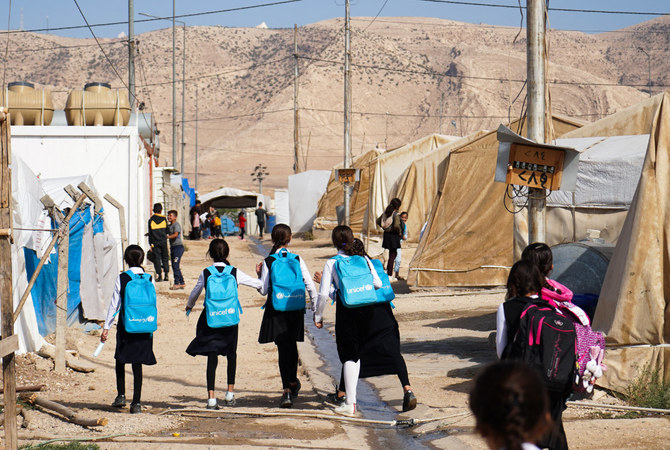Tackling the rise in cases of sexual harassment in Iraq

https://arab.news/mt93c
In Iraq, stories about women and girls being sexually harassed have become typical and frequent, mostly without the accused being held accountable for his actions. Sexual harassment has become a common phenomenon in Iraqi society. Nobody could imagine that in Iraq little girls and boys are being sexually assaulted and even blamed for it.
Basically, the majority believe nothing can protect a woman from harm and harassment better than wearing the hijab, which would reflect her chastity and purity — adding to that the misconception about the correct classification of sexual harassment and sexual abuse.
Internationally, sexual harassment includes unwelcome sexual advances, requests for sexual favors and other verbal harassment of a sexual nature. In comparison, sexual abuse refers to sexual behavior or a sexual act forced upon a person without their consent.
According to an article published by Iraqi author Balsam Mustafa and co-writer Ban Layla, conservative societies, including in Iraq, families give their sons the authority and entitlement to impose restrictions and control on their sisters’ lives, choices and personal decisions. “On the contrary, daughters are raised to submit to male authority while holding them responsible for protecting themselves by covering themselves and disassociating themselves from falling into shame, sin, and the forbidden; otherwise, they will face dire consequences,” the article read.
A recent survey conducted by one women’s rights organization showed that 38.8 percent of women in Iraq had been subjected to physical sexual harassment and 30.6 percent had faced verbal harassment. Just under 15 percent had been exposed to subtle sexual harassment, such as unwelcome sexual comments, jokes and innuendo.
These incidents have been reported by women harassed at markets, on public transportation, in the street or at their workplace, whether in the public or private sector.
Women in Iraq are victims of their harassers and society as well. Blaming the victims and holding them responsible for what they have been through due to their attire or profession is a crime in itself.
The number of complaints is low due to women’s fear of having a tainted reputation or of getting fired from their job
Dalia Al-Aqidi
Women wearing hijabs or traditional abayas have also suffered their share of attacks, proving that the theory that only uncovered women are subjected to sexual harassment is wrong. A video that circulated on Iraqi social media platforms last week showed an abaya-wearing woman being physically harassed by an elderly sheikh in a public market.
Iraqi lawyer Mohammed Jumaa told me that the number of complaints of sexual harassment is low due to women’s fear of having a tainted reputation or of getting fired from their job. “There are women and girls killed due to being sexually assaulted, blackmailed or threatened. For some families, it is a disgrace that should be buried; meanwhile, we have seen female victims committing suicide, and nobody was interested in knowing the reason or searching for the culprit,” he said.
Even some journalists and activists in Iraq are not decent enough to defend women against this heinous crime. When a young lady posted a video of her harasser online, an inexperienced journalist accused the victim of committing a crime by exposing the man. He described her as an “experienced woman,” which is an insult by Iraqi standards. A female lawyer guest on his TV show agreed with him, saying that the woman should be ashamed of herself for recording the man while he was exposing himself to her on a public bus.
Another female activist and journalist said in a TV interview that men were the victims of these women. “We live in a Middle Eastern closed society; unfortunately, we see here emulation of the Western culture, especially among girls under 20, who wear inappropriate clothes. We have a young experience in opening up and freedom,” she said.
It seems that this so-called activist, along with many other like-minded people, have forgotten their country’s modern history and the vital role of women in Iraqi society.
Iraqi lawyer Zakia Ismail Hakki was the first female judge in the Middle East after being appointed in 1959. In the same year, Iraq became the first Arab country to appoint a woman as a government minister, when Naziha Al-Dulaimi was appointed minister of municipalities.
Iraq was also the only country in the entire region in this era to issue a law ensuring equitable personal status for women. Law No. 188 of 1959 restricted polygamy, set the minimum age for marriage at 18 years, equalized inheritance for both sexes, and gave women the right to instigate divorce.
A country with such educated women and so deep a history as Iraq should not hit rock bottom in 2022, allowing men to harass women freely without severe consequences, from corrupt officials to the average man on the street.
• Dalia Al-Aqidi is a senior fellow at the Center for Security Policy. Twitter: @DaliaAlAqidi









































